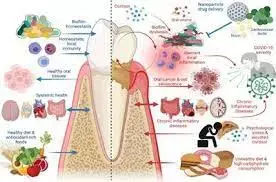- Home
- Medical news & Guidelines
- Anesthesiology
- Cardiology and CTVS
- Critical Care
- Dentistry
- Dermatology
- Diabetes and Endocrinology
- ENT
- Gastroenterology
- Medicine
- Nephrology
- Neurology
- Obstretics-Gynaecology
- Oncology
- Ophthalmology
- Orthopaedics
- Pediatrics-Neonatology
- Psychiatry
- Pulmonology
- Radiology
- Surgery
- Urology
- Laboratory Medicine
- Diet
- Nursing
- Paramedical
- Physiotherapy
- Health news
- Fact Check
- Bone Health Fact Check
- Brain Health Fact Check
- Cancer Related Fact Check
- Child Care Fact Check
- Dental and oral health fact check
- Diabetes and metabolic health fact check
- Diet and Nutrition Fact Check
- Eye and ENT Care Fact Check
- Fitness fact check
- Gut health fact check
- Heart health fact check
- Kidney health fact check
- Medical education fact check
- Men's health fact check
- Respiratory fact check
- Skin and hair care fact check
- Vaccine and Immunization fact check
- Women's health fact check
- AYUSH
- State News
- Andaman and Nicobar Islands
- Andhra Pradesh
- Arunachal Pradesh
- Assam
- Bihar
- Chandigarh
- Chattisgarh
- Dadra and Nagar Haveli
- Daman and Diu
- Delhi
- Goa
- Gujarat
- Haryana
- Himachal Pradesh
- Jammu & Kashmir
- Jharkhand
- Karnataka
- Kerala
- Ladakh
- Lakshadweep
- Madhya Pradesh
- Maharashtra
- Manipur
- Meghalaya
- Mizoram
- Nagaland
- Odisha
- Puducherry
- Punjab
- Rajasthan
- Sikkim
- Tamil Nadu
- Telangana
- Tripura
- Uttar Pradesh
- Uttrakhand
- West Bengal
- Medical Education
- Industry
Consumption of dietary live microbes directly associated with improved periodontal health suggests study

Consumption of dietary live microbes directly associated with improved periodontal health suggests a study published in the Oral Diseases.
Investigate the link between live dietary microbe consumption and the prevalence of periodontitis. National health and nutrition examination survey (2009–2014) data was used to assess the association among adults. Live dietary microbe intake was categorized as low or medium to high. Regression models were employed to assess this association, adjusting for demographic variables and other covariates. Examined dose–response relationship and conducted subgroup analyses by ethnicity, age and gender. Multiplicative interactions were evaluated using likelihood ratio tests.
Results: The analysis included 8574 participants. After adjusting for various factors including age, gender, ethnicity, dietary habits, dietary inflammatory index, alcohol consumption, smoking status, hypertension, diabetes mellitus and oral health behaviors, individuals with daily intake of medium to high levels of live dietary microbes showed a significantly reduced risk of periodontitis compared to those who did not consume such microbes with a dose–response trend (p for trend <0.0001, p < 0.01). Significant differences in the impact of live microbe intake on periodontitis were also observed across different age groups in all Models (p for interaction ≤0.05). Medium to high live dietary microbe consumption independently correlates with lower periodontitis risk, irrespective of traditional risk factors and demographics.
Reference:
Lin, J., Yang, H., Lin, Z., & Xu, L. (2024). Live dietary microbes and reduced prevalence of periodontitis: A cross-sectional study. Oral Diseases, 00, 1–11. https://doi.org/10.1111/odi.14869
Dr. Shravani Dali has completed her BDS from Pravara institute of medical sciences, loni. Following which she extensively worked in the healthcare sector for 2+ years. She has been actively involved in writing blogs in field of health and wellness. Currently she is pursuing her Masters of public health-health administration from Tata institute of social sciences. She can be contacted at editorial@medicaldialogues.in.
Dr Kamal Kant Kohli-MBBS, DTCD- a chest specialist with more than 30 years of practice and a flair for writing clinical articles, Dr Kamal Kant Kohli joined Medical Dialogues as a Chief Editor of Medical News. Besides writing articles, as an editor, he proofreads and verifies all the medical content published on Medical Dialogues including those coming from journals, studies,medical conferences,guidelines etc. Email: drkohli@medicaldialogues.in. Contact no. 011-43720751


